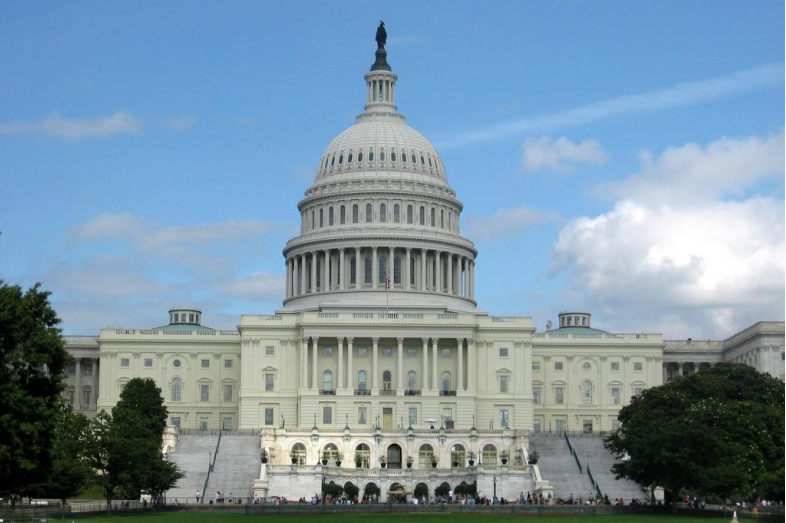

After countless false starts and protracted negotiations, a bill to reauthorize the main federal law for K-12 education is slated for consideration by the U.S. Senate this week.
This is the closest the reauthorization of the Elementary and Secondary Education Act has come to reality since the law was last updated in 2002 under President George W. Bush. The law, also known as the No Child Left Behind Act, was slated for renewal in 2007.
In the meantime, Congress has been periodically approving funding for the nation’s public schools, and fighting along the way about a more permanent solution.
The bipartisan Every Child Achieves Act, which the Senate was expected to begin debate on today, was unanimously approved by the chamber’s education committee this spring.
As Education Week’s Alyson Klein noted on the Politics K-12 blog, any enthusiasm should be tempered with a hard dose of reality. The chances that the bipartisan compromise bill will actually be signed into law is “far from a slam dunk—there are still a lot of dominoes that need to fall into place.”
A central issue is how much involvement the feds should have in how states and local districts spend those dollars, the best formula to use for deciding how much to allocate, and what sort of strings should be tied to the money. The ESEA rewrite, passed unanimously this spring by the Senate’s education committee, would continue to require schools to conduct annual testing of students at most grade levels. But states would have greater flexibility in how those results are collected, used, and disseminated.
Writing for The National Review, Andy Smarick of Bellwether Education Partners contends that removing those federal “guardrails” would be a disservice to students:
“Conservative leaders understandably want to use the rewriting of ESEA to clip federal wings. But conservatives should guard against the impulse to overcorrect — to remove any semblance of a federal role in ensuring that billions in federal taxpayer dollars actually generate better results.”
In an op-ed piece for the online L.A. Schools Report, fourth-grade teacher Chris Hoffman argues that grade-level testing needs to be preserved, while the new law must also address inequities in education funding among schools serving children from low-income families and those coming from more affluent households. That’s a wide gap in Los Angeles Unified, the nation’s second-largest school district, says Hoffman.
She’s certainly not the only one pushing for more equitable funding. Last month, a coalition of 35 civil rights organizations, including the Leadership Conference on Civil and Human Rights, the NAACP and the Education Trust, sent a letter to Congress demanding that the proposed bill include more accountability – not less – when it comes to tracking performance and resources for historically underserved student populations.
“We do not support the bill in its current form because, without addressing these issues, it will not fulfill its functions as a civil rights law,” the organizations said.
(The White House also shares those concerns, Education Week reported.)
There are plenty of new bells and whistles buried in the compromise bill in the Senate, which was co-sponsored by Sens. Lamar Alexander (R-Tenn.) and Patty Murray (D-Wash.). Education Week’s Klein does a good job highlighting some of them, including a potentially controversial amendment aimed at protecting students from bullying related to their sexual orientation.
But at the heart of the debate is the question of accountability for results: How explicit should the federal government be in requiring states to set accountability demands for schools and districts? To what extent should these decisions about gauging progress and establishing consequences be left up to states? And if states do get free rein, where will they go with it?
We’ve been keeping close tabs on the reauthorization’s progress. My EWA colleague Erik Robelen looked at issues related to school choice addressed in the legislation, and it was the topic of a plenary panel discussion at our Chicago seminar. You can watch video highlights of “RIP NCLB?” here. Kate Grossman of the Chicago Sun-Times did a terrific write-up of the session. We also tackled the issue of funding inequities among states at EWA’s recent National Seminar in Chicago. You can read about that session here, and my take on a pair of reports on state funding formulas, as well.
For more on the ESEA, take a look at EWA’s Topics Page, which has a wealth of background on the history of the law, recent reports, and key coverage.
